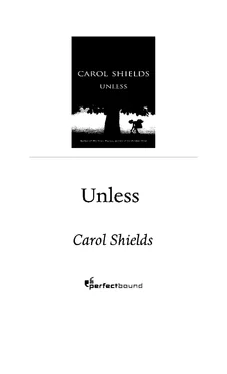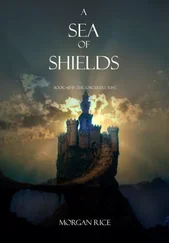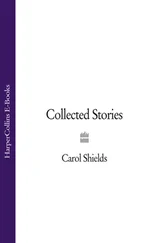Carol Shields - Unless
Здесь есть возможность читать онлайн «Carol Shields - Unless» — ознакомительный отрывок электронной книги совершенно бесплатно, а после прочтения отрывка купить полную версию. В некоторых случаях можно слушать аудио, скачать через торрент в формате fb2 и присутствует краткое содержание. Жанр: Современная проза, на английском языке. Описание произведения, (предисловие) а так же отзывы посетителей доступны на портале библиотеки ЛибКат.
- Название:Unless
- Автор:
- Жанр:
- Год:неизвестен
- ISBN:нет данных
- Рейтинг книги:4 / 5. Голосов: 1
-
Избранное:Добавить в избранное
- Отзывы:
-
Ваша оценка:
- 80
- 1
- 2
- 3
- 4
- 5
Unless: краткое содержание, описание и аннотация
Предлагаем к чтению аннотацию, описание, краткое содержание или предисловие (зависит от того, что написал сам автор книги «Unless»). Если вы не нашли необходимую информацию о книге — напишите в комментариях, мы постараемся отыскать её.
Unless — читать онлайн ознакомительный отрывок
Ниже представлен текст книги, разбитый по страницам. Система сохранения места последней прочитанной страницы, позволяет с удобством читать онлайн бесплатно книгу «Unless», без необходимости каждый раз заново искать на чём Вы остановились. Поставьте закладку, и сможете в любой момент перейти на страницу, на которой закончили чтение.
Интервал:
Закладка:
I learned to say the prayer perfectly. “The way she enunciates!” my father, the lapsed Presbyterian, said, his voice full of warm minerals. This was a mere trick, and I’d learned how to do it, and in so doing I had made them love me even more. “Isn’t she the clever one,” they said, and every time they said it, it was as if they handed me a flower. Bien douée, said my mother, who had not been inside a Catholic church since her marriage. I remember how she shook her head with wonder, the proud young mother, the way she stood so buoyantly on the front porch in her lime-coloured pedal-pushers and squeaky Mexican sandals — there is a word for those woven leather shoes: huaraches. She loved her early married life, her little mock-Elizabethan Toronto house and rectangular patch of garden, and that period of time before she became discouraged.
From my mother I developed my love of flowers. Their shapes came folded inside tiny seeds, so small that fifty of them filled the bottom of a flat seed packet. They were miraculously encoded from the beginning, little specks of dark matter that we shook into our hands, then sowed into flower beds. They sprouted, then opened out in a studied and careful program of increments. Now, that was astonishing, all those compressed unfoldings and burstings, but no one said so. No one made a fuss when the seeds actually performed: sprouts, leaves, the long rivery stems, and finally the intricacy of blossoms. I liked to tear the silk of the petals between my fingers, rubbing the pollen into my hands. “But that isn’t nice, Reta,” my mother said. “Why would you want to hurt a beautiful flower?” I didn’t believe this, that flowers hurt, but nevertheless I didn’t do it again. I was the inept child searching for those moments of calm when I would find adult validation or at least respite from my endless uncertainty.
I once scratched the banister with a spoon. My mother rubbed it with butter, and the scratch went away. She had no idea I had done it, her little girl wouldn’t do a thing like that.
With great good nature they laughed when I said eggshells were made of plastic, and also when I asked my father if we could buy some icicles to hang from our roof. Our neighbours, the McAndrews, had icicles, long sculptured fingers of silvery ice that lasted all winter. “Our little Reta,” they said, laughing. “Our little one.” I was afraid of drowning in their approbation. There was nothing hard to hang on to. Any minute I would lose my balance and then I wouldn’t be little Reta anymore. Like Norah, I wouldn’t be anything.
I had no siblings, but I closely observed small babies who entered our house, the children of my parents’ friends. There they lay, tiny, bundled, smelling like spoiled milk, wound tight in fleece blankets. From the beginning I saw that they possessed a patient evenness of curiosity that reduced and simplified the mysteries thronging our household. They didn’t worry as I did about the halo around the head of the baby Jesus, what it was made of, what kept it hovering over his head and travelling along with him wherever he went. They put their small hands on the plastic-ribbed face of the radio in the kitchen and laughed at the vibrations that poured out. I could see that they accepted simple electrical transmission for what it was, whereas I had special knowledge available to me: I knew there were little people living inside the radio’s shell, the obliging citizens of a miniature village that clung to a steep dark mountain. No one else knew this, and there was no one I trusted enough to tell.
It wasn’t neglect that spawned the ignorance I was captive to. Adults were too busy to deliver complicated explanations. In fact, it was partly the busyness of my parents that frightened me, the frantic responsibility that preoccupied them. Their job was to keep us alive.
It never occurred to them that I worried about the fact that I could see through my nose when I looked to the left or right, straight through, except for the fleshly blurred outline. And certainly neither of them stopped to express their own baffle-ment about the universe they inhabited, that they too might be swamped by barely grasped concepts. My slender, long-legged father patrolling the garden, swinging a cigarette in his hand, leaning down to inspect an iris; he possessed a gardener’s watchfulness and did not appear to reel with wonder at this serenely formal flower, that its cape and collar opened out of a tightly packed bulb, every part of it predestined and perfectly in place. He was a dealer in early Canadian pine furniture and as a sideline worked as a distresser; that is, he took modern limited editions of books and battered their pages and their boards into decent old age, giving them the tact and smell of history.
The moon followed me. When I staggered, seven years old, across the grass in the backyard, my head thrown back, willing myself to be dizzy, I could see how the moon lurched along with my every step, keeping me company as I advanced toward the peony bed.
Why, out of all the people in the world, had I been chosen as the moon’s companion? What did this mean? Honour, responsibility, blame, which?
I confided to my friend Charlotte this curious business about the moon. But she insisted that, on the contrary, the moon followed her. So back to back, at the end of the lane we paced off steps, she one way, I the other. Immediately I grasped the fact that the moon followed everyone. This insight came mostly as a relief, only slightly tarnished with disappointment.
Charlotte was the child of a Danish-Canadian family who ran a sign-painting business on Bloor Street. The secret at the centre of her heart was her father’s first name: Adolph.
Knowing the evil associations of that blunt, harsh Adolph (none of this was clear to me), he went by the name of Chris Christiansen. I promised I would never tell anyone his true name, and I never did. Charlotte had yellow hair, cut squarely, severely. She was exceptionally docile and obedient. Some other, older, child said to me, speaking of Charlotte, that the good die young, and that that would be Charlotte’s fate. This was uttered with such authority — nonchalantly, nonchalantly, accepting, accepting — that I believed it absolutely, without any evidence either of Charlotte’s essential goodness or of the kind of early death she might expect to be honoured with. Charlotte’s goodness and her presumed punishment were entered on the roll of confusion that made up my bank of assumptions, and the problem of goodness — what is it? where does it come from? — occupies me still.
Confusion has kept me from staring back at childhood through drifts of longing. Danielle Westerman says much the same thing in her piece “Sentimentality.” She is the other voice in my head, almost always there, sometimes the echo, sometimes the soloist. Who would wish, the renowned Dr. Westerman says, a return to such grunting incomprehension, when, mon Dieu, we are all struggling to keep up a brave front, pretending to know how the world works? The fact is, I didn’t need to know everything, and no one expected it of me in the first place.
It seems I have a knack for self-forgiveness. This is one of the very few easy comforts still available to me at age forty-four — that there is no need to suffer that degree of guttered fear and ignorance again. I’ve kept a steady eye on my own growing children, watching for signs of a similar disorientation and hoping I can jump in and rescue them with assurance and knowledge. Norah, of course, has temporarily been lost. She’s got my disease, only worse.
She’s been listening too avidly, too seriously, caring too much, so that harm has come up upon her by surprise. As for Natalie and Chris, they seem, so far, in a state of calm, despite what’s happened to their sister. There’s an excellent possibility, however, that they’re bluffing.
Читать дальшеИнтервал:
Закладка:
Похожие книги на «Unless»
Представляем Вашему вниманию похожие книги на «Unless» списком для выбора. Мы отобрали схожую по названию и смыслу литературу в надежде предоставить читателям больше вариантов отыскать новые, интересные, ещё непрочитанные произведения.
Обсуждение, отзывы о книге «Unless» и просто собственные мнения читателей. Оставьте ваши комментарии, напишите, что Вы думаете о произведении, его смысле или главных героях. Укажите что конкретно понравилось, а что нет, и почему Вы так считаете.












